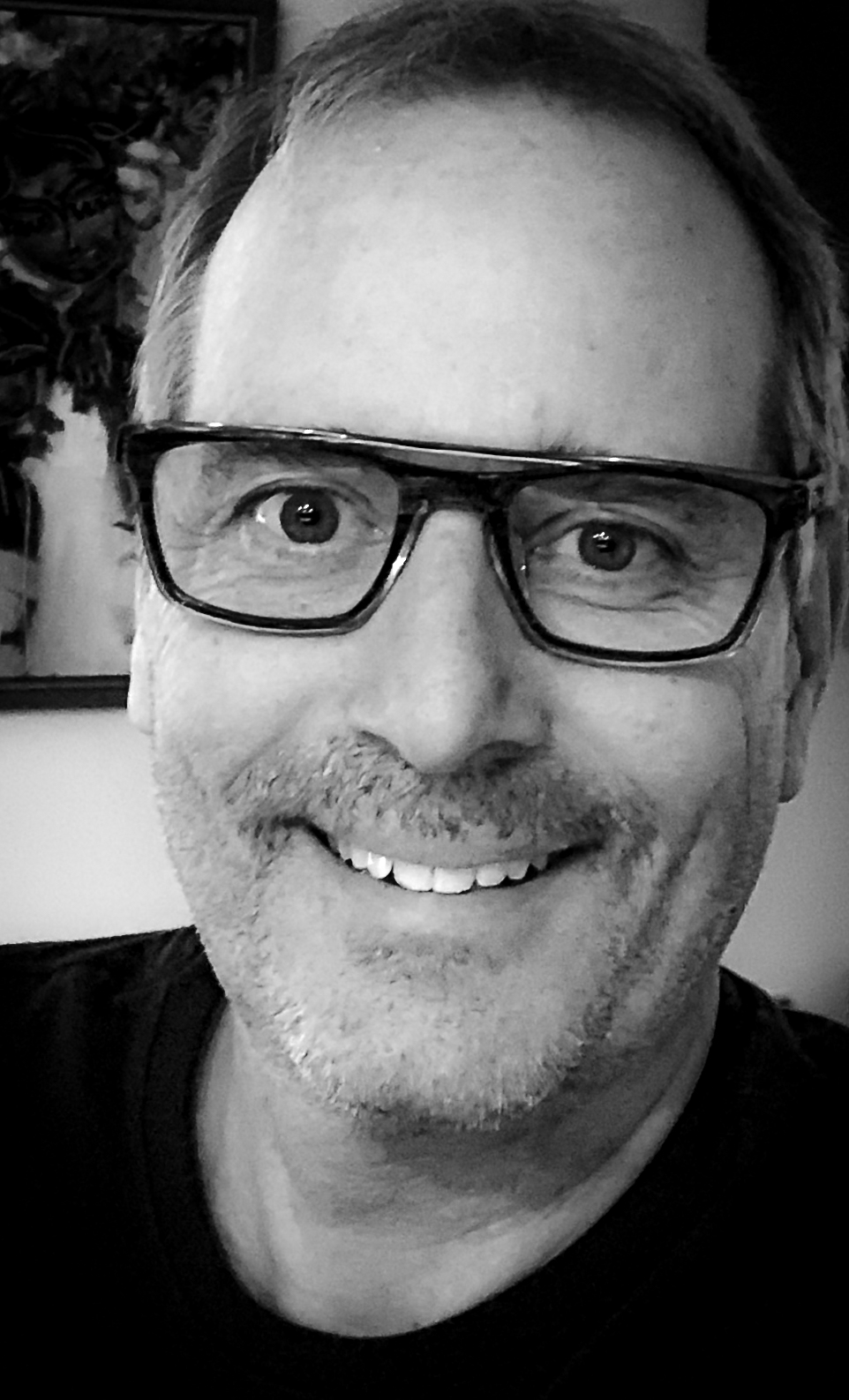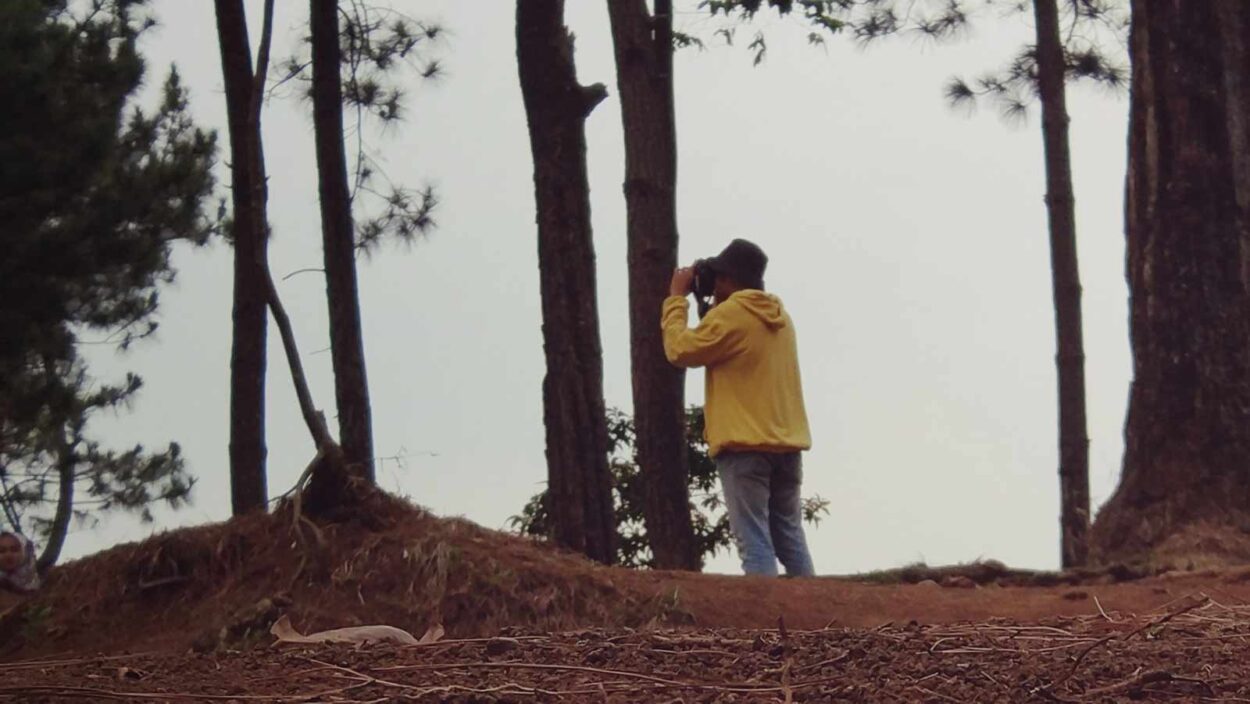When John Richards sat in on Colette Freedman’s seminar on ten-minute plays, he didn’t expect that within a year he would be a working playwright with his first full-length play opening in New York City this August. In fact, he almost missed the class. It was given during the middle of his nine-day MFA in Writing and Contemporary Media residency at Antioch University Santa Barbara (AUSB), and John had planned to use that time to take a break, visit his favorite frozen yogurt shop, and clear his mind. But at the last minute he thought, “Oh, what the hell, I’ll try this playwriting class. I’ve never so much as read a play, let alone written one, but why not?”
One of the key messages that he remembers Professor Freedman emphasizing in the seminar was that “everyone is looking for new plays—they are in demand.” For Richards, this has proven to be true: three weeks ago he got a letter from the directors of the Broadway Bound Theatre Festival inviting him to bring his original play Bird Watching to their festival, where they will produce and stage at least three showings of the play. He says that learning this news gave him feelings of “shock, plus relief—and validation.”
Richards describes Bird Watching as a dark comedy set in the present day that circles around grief, bigotry, armed teachers, and—fast-forwarding 155 years—a serious mishap in cryogenic unfreezing. The central characters are a teenager and an avid bird watcher. Both are grieving a close family member’s death, but they are a study in contrasts. The teenager, who Richards admits is an “amalgamation of certain characteristics of my three kids,” is sarcastic and independent as she tries to make sense of the loss of her mother while touring colleges. (Her father who takes her on the trip is, like Richards, unnecessarily intense.) Meanwhile, the older bird watcher is coping with the loss of her husband by indulging her anger and intolerance. Richards says this character was inspired by the repeated experience of hearing “someone say, ‘Look, I’m not at all racist, but…’ and then go on to say something blatantly racist, and they don’t even realize it.”
Ultimately, he wanted to use the play to explore themes he thinks are important to write about: losing a loved one, undercover bigotry, and the consequences of one’s actions.
The origins of bird-watching as an aspect of the play, meanwhile, have less to do with Richards’s lifelong interests and more to do with an experience he had. He and his wife took a bird-watching class (he says he’s “not sure what we were thinking”), and he found it hard to focus on the intricacies of bird identification. “I found my mind wandering from the glorious view of a scrub jay to what kind of twisted story can I write about this experience.”
 Although he is just embarking on a career as a playwright, Richards has behind him four decades of work experience—mostly as a sneaker executive. In thirty years at Nike, John lived across the world, from Indonesia and Singapore to Amsterdam and Portland, Oregon. But when he left Nike to start a small consulting business, he and his wife decided to settle down in Santa Barbara. He had recently rediscovered the passion for writing prose that had animated him as a young adult. This interest was fostered by taking weekly writing workshops offered by the Portland nonprofit Literary Arts. The instructors and classmates there helped him realize that he “needed some structured education to bring [writing] from a hobby to a potential second career.” He decided to pursue an MFA in Creative Writing, and between the many programs out there he chose to attend AUSB because it would allow him to “explore new areas of writing, screenplays, playwriting, and still be supporting with prose.”
Although he is just embarking on a career as a playwright, Richards has behind him four decades of work experience—mostly as a sneaker executive. In thirty years at Nike, John lived across the world, from Indonesia and Singapore to Amsterdam and Portland, Oregon. But when he left Nike to start a small consulting business, he and his wife decided to settle down in Santa Barbara. He had recently rediscovered the passion for writing prose that had animated him as a young adult. This interest was fostered by taking weekly writing workshops offered by the Portland nonprofit Literary Arts. The instructors and classmates there helped him realize that he “needed some structured education to bring [writing] from a hobby to a potential second career.” He decided to pursue an MFA in Creative Writing, and between the many programs out there he chose to attend AUSB because it would allow him to “explore new areas of writing, screenplays, playwriting, and still be supporting with prose.”
Richards started his coursework by focusing on prose under the mentorship of the novelist, screenwriter, and scholar of afro-futurism Tananarive Due. He particularly enjoyed the short story format because writing them “gave me the opportunity to write a full story, beginning, middle, end, without getting bogged down in a novel.” Beyond Due, AUSB offered Richards a strong community of other teachers and fellow students who helped push his writing to improve. But the real turning point for his writing came in that seminar on ten-minute plays. He liked how Colette Freedman “was very tough, to the point, never minced words. If my writing was crap, she’d tell me.” But as he studied further under her, he loved that she was also “very inspiring, a good coach, respected your work, very encouraging and complimentary when it was truly earned.”
As he shifted his coursework to focus entirely on playwriting, Richards first confined his work to ten-minute plays and gradually worked up to full length. It was never easy, but he says Freedman pushed him “to go deeper, do better, and never let [him] off the hook.” The process was “like climbing Mount Everest without the use of supplemental oxygen,” and ultimately just as rewarding. When he combined four of the ten-minute plays he’d been working on into a single, full-length play, he knew he had something special on his hands. He titled it Bird Watching and submitted the play to festivals to see if someone might be interested in producing it. And that was how he came to learn, during the final semester of his MFA, that he’d be traveling to New York City (pandemic permitting) to help stage and finalize his first play.
His teacher, Colette Freedman, isn’t surprised. She says that she “knew that it was only a matter of time before John’s plays would be produced.” Freedman gives two central reasons for her student’s success: “1. He is that good and 2. He immediately subscribed to my personal philosophy which is that great work shouldn’t be trapped on someone’s computer. He put in the work to make his plays great, often with several rewrites, and didn’t rest there. He submitted them to contests and festivals. So, it was only a matter of time before someone recognized what he and I already knew: He is a talented storyteller.”
Looking to the future, Richards’s immediate ambition is “to make the off-Broadway premiere of Bird Watching a big success and then to bring it to Broadway, to the west coast, etc.” He’s hoping to use his experience in marketing to work with the festival to create a brand for his play and social media strategy. Beyond that, he is working on a novel and writing more plays. He says that these dreams are largely possible due to the support of his wife, Julie, and his children, David, Abby, and Laurel—who provided much feedback on successive drafts of Bird Watching and are looking forward to helping with his next project.
But in the meantime, he has to work with Lenore Skomal, the director of the Broadway Bound Theatre Festival, on re-writes to Bird Watching. He’s also going to graduate from his MFA. It’s been a big year, and the next one promises to be even bigger.



